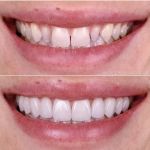
- Importance of Oral Health for Diabetics
- How Diabetes Affects Oral Health
- Oral Health Tips for Diabetics
- Common Oral Health Issues Diabetics Face
- Preventing Oral Health Problems with Diabetes
Importance of Oral Health for Diabetics
Oral health is a critical aspect of overall well-being, especially for individuals living with diabetes. The connection between diabetes and oral health goes beyond just having a good smile. Poor oral health can lead to serious complications for diabetics, making it essential to maintain good hygiene and regular dental care. A healthy mouth not only boosts your confidence but also plays a significant role in managing diabetes and preventing other health issues.
How Diabetes Affects Oral Health
Diabetes can affect your oral health in several ways, often making individuals with diabetes more susceptible to issues like gum disease, dry mouth, and infections. High blood sugar levels can impact the body's ability to fight bacteria, increasing the risk of infections in the mouth. Additionally, poor circulation and weakened immune responses due to diabetes can result in slower healing times for oral wounds, leading to more severe complications.
Impact of High Blood Sugar on Oral Tissues
When blood sugar levels are consistently high, it leads to more glucose in the saliva, which can encourage the growth of harmful bacteria. This, in turn, increases the likelihood of plaque buildup on the teeth, which can result in tooth decay and gum disease. Over time, untreated oral health issues can exacerbate the complications related to diabetes, including an increased risk of heart disease.
Dry Mouth and Diabetes
Diabetes also contributes to dry mouth, a condition known as xerostomia. High blood sugar levels can lead to dehydration, reducing the amount of saliva in the mouth. Saliva is essential for neutralizing acids in the mouth, washing away food particles, and protecting against bacteria. Without enough saliva, individuals with diabetes may experience more frequent cavities, gum disease, and discomfort.
Oral Health Tips for Diabetics
Maintaining good oral hygiene is crucial for anyone, but it's especially important for individuals with diabetes. Below are some essential oral health tips that can help diabetics protect their teeth and gums:
- Brush and Floss Regularly: Brush your teeth at least twice a day using fluoride toothpaste and floss daily. This helps to remove plaque and prevent tooth decay and gum disease. Diabetics should also use a soft-bristled toothbrush to avoid irritating sensitive gums.
- Monitor Your Blood Sugar: Keeping blood sugar levels within the recommended range is essential for maintaining oral health. High blood sugar increases the risk of infections and other oral health problems. Regular monitoring can help you control your condition and prevent complications.
- Stay Hydrated: Drinking plenty of water helps combat dry mouth. It's important to stay hydrated throughout the day to maintain sufficient saliva production. Carry a water bottle with you and sip throughout the day to ensure you're staying hydrated.
- Visit Your Dentist Regularly: Diabetics should schedule dental checkups at least twice a year, or more often if recommended by your dentist. Regular cleanings and exams help catch potential issues early before they become serious problems.
- Use Antibacterial Mouthwash: Using a mouthwash with antibacterial properties can help reduce the buildup of plaque and bacteria in the mouth. Consult with your dentist to find the best mouthwash for your needs.
Common Oral Health Issues Diabetics Face
Diabetics are at an increased risk of developing several oral health problems. Being aware of these potential issues can help you take preventative measures to avoid complications:
Gum Disease
Gum disease is one of the most common oral health issues for people with diabetes. High blood sugar can lead to inflammation of the gums, which can progress to periodontal disease if left untreated. Symptoms of gum disease include swollen, bleeding gums, bad breath, and loose teeth. Early intervention through good oral hygiene and regular dentist visits is key to preventing serious damage.
Tooth Decay
Diabetics are more prone to tooth decay due to increased sugar levels in the mouth, which provide food for harmful bacteria. Plaque buildup on teeth leads to cavities and gum disease. Maintaining a healthy diet and good oral hygiene can help prevent cavities and tooth loss.
Thrush
Oral thrush is a fungal infection that can affect individuals with diabetes. The fungus Candida thrives in environments with high sugar levels, which makes diabetics more susceptible to developing this condition. Symptoms of oral thrush include white patches in the mouth, soreness, and difficulty swallowing.
Preventing Oral Health Problems with Diabetes
Prevention is key to avoiding the serious oral health issues associated with diabetes. Here are some additional tips that can help:
- Control Your Blood Sugar: Managing your diabetes through a healthy diet, exercise, and medication can help keep your blood sugar levels in check, reducing the risk of oral infections.
- Avoid Smoking: Smoking is particularly harmful to people with diabetes and can worsen oral health problems like gum disease and tooth loss. Quitting smoking can improve both your oral and overall health.
- Eat a Balanced Diet: A diet rich in vitamins and minerals, especially vitamin C, calcium, and phosphorus, can help maintain healthy gums and teeth. Limiting sugary foods and drinks can also help prevent cavities and plaque buildup.
By following these oral health tips and working closely with your healthcare team, you can significantly reduce the risk of oral health problems. For the best products and services tailored to your needs, visit Family Dentistry Online to get recommendations that support your dental care journey.







 Lourdes's Dentistry - Affordable Dentist4.0 (160 review)
Lourdes's Dentistry - Affordable Dentist4.0 (160 review) Silc Periodontics4.0 (169 review)
Silc Periodontics4.0 (169 review) Doc Bresler's Cavity Busters4.0 (363 review)
Doc Bresler's Cavity Busters4.0 (363 review) McCall Family Dentistry5.0 (718 review)
McCall Family Dentistry5.0 (718 review) Justin Ewell, DMD at Suncoast Dental Goodyear0.0 (0 review)
Justin Ewell, DMD at Suncoast Dental Goodyear0.0 (0 review) Harbor Point Dental at Pelham Manor4.0 (118 review)
Harbor Point Dental at Pelham Manor4.0 (118 review) The Importance of Oral Health Education During Pregnancy for a Healthy Pregnancy
The Importance of Oral Health Education During Pregnancy for a Healthy Pregnancy Best Tips for Brushing Your Teeth Properly for Healthy Gums: Essential Techniques for Oral Health
Best Tips for Brushing Your Teeth Properly for Healthy Gums: Essential Techniques for Oral Health Why Skipping Dental Checkups Can Lead to Bigger Oral Health Problems
Why Skipping Dental Checkups Can Lead to Bigger Oral Health Problems Advantages of Porcelain Dental Restorations
Advantages of Porcelain Dental Restorations How Can Diabetes Cause Tooth and Gum Problems? Preventing and Managing Oral Health Issues
How Can Diabetes Cause Tooth and Gum Problems? Preventing and Managing Oral Health Issues Healthy Habits for Promoting Good Oral Health and Hygiene: Tips for a Healthy Smile
Healthy Habits for Promoting Good Oral Health and Hygiene: Tips for a Healthy Smile